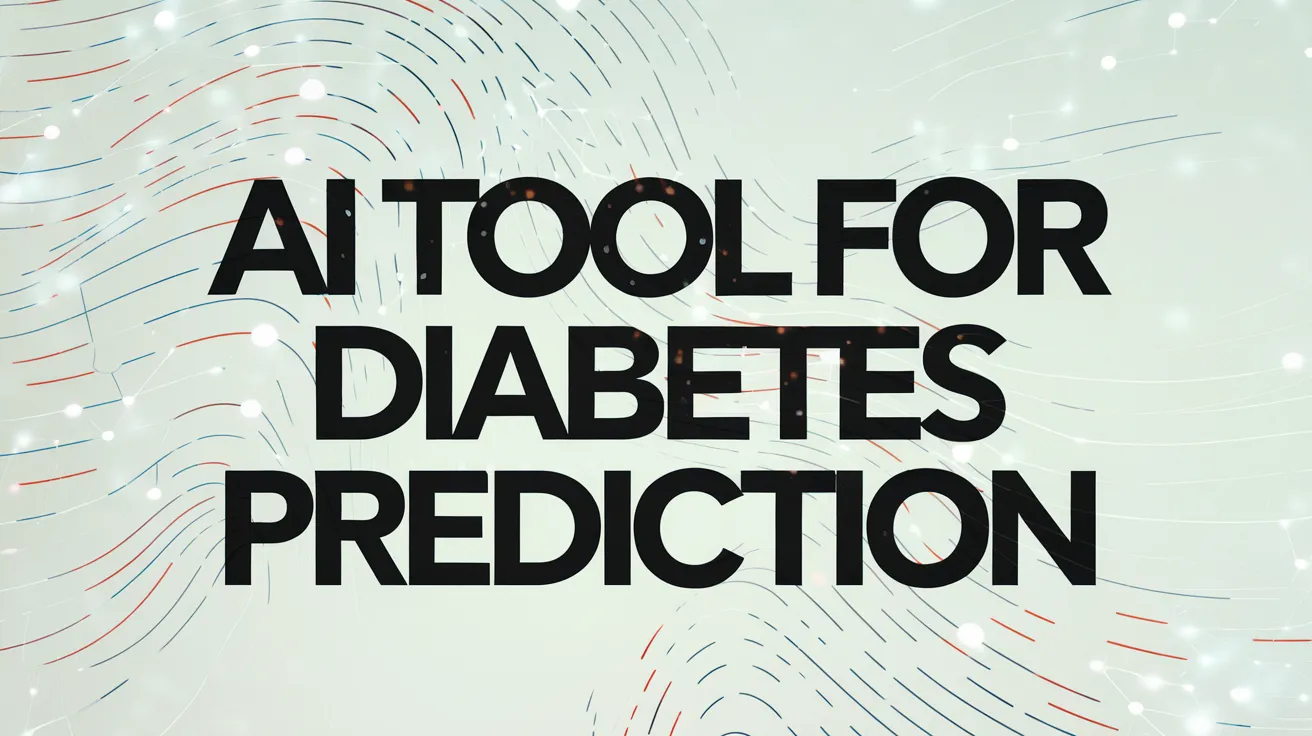NHS Launches Trial for AI Tool to Predict Diabetes Risk

The NHS in England is embarking on a world-first trial of a revolutionary AI tool aimed at identifying patients at risk of type 2 diabetes years before they develop the condition. With over 500 million individuals globally affected by type 2 diabetes, finding innovative ways to detect at-risk individuals early is becoming a pressing global health priority. Projections indicate that by 2050, around 1 billion people could be living with this chronic condition.
Type 2 diabetes is a significant contributor to serious health complications, including blindness, kidney failure, heart attacks, strokes, and lower limb amputations. While often linked to factors such as obesity, inactivity, or familial history, it’s crucial to note that diagnosis can occur even among those who do not fit these typical profiles.
Introduction of the AI Tool
Developed by a team of doctors and scientists, the novel AI technology can predict diabetes risk up to 13 years in advance by analyzing electrocardiogram (ECG) readings obtained during routine heart scans. This approach allows for the detection of subtle variations that might be undetectable to the human eye, potentially alerting healthcare providers to individuals on the verge of developing type 2 diabetes.
By enabling early interventions, the tool could guide at-risk patients towards lifestyle and dietary modifications that may prevent the onset of the disease. The NHS is slated to commence trials in 2025, utilizing the tool at Imperial College Healthcare NHS Trust and Chelsea and Westminster Hospital NHS Foundation Trust, marking a pioneering effort in global medical practice.
Aire-DM: The Innovative AI Solution
The AI tool, named the AI-ECG risk estimation for diabetes mellitus (Aire-DM), was developed using a database of 1.2 million ECGs drawn from hospital records. It was further validated through data from the UK Biobank, which includes comprehensive genetic and health information of over 500,000 participants. The innovation lies in mapping tiny ECG patterns that correlate with future diabetes risk, examining new ECG data for these indicators.
Indicators of potential diabetes risk include slight variations in the electrical signals of the heart, such as timing discrepancies, shape alterations, or specific patterns in the electrical waves. It can also assess longer activation times of electrical impulses and atypical resetting of heart signals—changes that, while seemingly minor, indicate the early impact of diabetes on heart structure and function.
Accuracy and Future Implications
Preliminary tests indicate that the AI tool can accurately predict diabetes risk about 70% of the time across diverse, demographic groups. When combined with genetic and clinical data, such as age and blood pressure, the accuracy increases notably, offering a clearer understanding of individual risk levels.
Prof. Bryan Williams, the chief scientific and medical officer of the British Heart Foundation—an organization that contributed funding for the tool’s development—expressed optimism about the research, noting its potential as a transformative approach to predicting type 2 diabetes risk years before its onset.
The promise of Aire-DM suggests that with appropriate support, individuals may effectively lower their risk of developing type 2 diabetes, combating a rapidly growing public health concern. The excitement surrounding this technology highlights its potential to become a substantial component of preventive healthcare and routine clinical practice, ultimately aiming to enhance health outcomes and reduce diabetes-related complications.